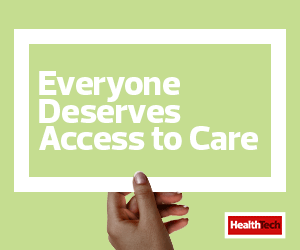Data Integration Necessary for Long-Term Care
Cleveland Clinic announced the opening of its reCOVer clinic in March to treat long-COVID patients. As of late April, the health system saw more than 260 patients with lingering COVID symptoms, says Englund, who leads the clinic.
It took a large IT team to get physician schedules and patient-entered data integrated into the Epic EHR system, according to Englund.
At the clinic, patients undergo an initial physical evaluation, and the EHR incorporates patient-entered data from questionnaires, Englund says. The EHR also details the patient’s health pre-COVID, and physicians can review the data to see if someone is testing strongly for depression, anxiety or post-traumatic stress disorder, so they can get needed care right away.
Physicians then follow up with a 30-minute telehealth session over a firewalled version of Zoom that launches from within the EHR.
READ MORE: Learn how to achieve an end-to-end virtual care solution..
“It’s a virtual visit where the same provider goes over all of the testing results with the patient and then discusses next steps,” Englund says. A physician may then recommend one of 18 specialists at the clinic, such as a cardiologist or physical therapist.
Englund is hopeful her team will get a better understanding of long COVID by studying patients’ data to help improve their condition.
“While we don't currently have treatments for it, we have the ability to help patients with their symptoms and try to understand it better,” Englund says. “Not until we get even more robust data on what these patients’ look like and what things they're going through can we really make that clear of a statement, so I'm looking forward to getting this data.”
Connecting with Long-Haul Patients Through Telehealth
Last year, Dr. Aaron Bunnell, a physician at the Rehabilitation Clinic at UW Medicine Harborview Medical Center in Seattle and an assistant professor of rehabilitation medicine, co-founded a long-hauler clinic to help patients who were never hospitalized but still struggle with lingering effects on physical and cognitive function.
Harborview already employed telemedicine, but now it uses HIPAA-compliant Zoom sessions, according to Bunnell. The clinic collects data from these patients in several ways. For example, patients send data to physicians from pulse oximeters and blood pressure monitors. Bunnell’s team also sends surveys from the Epic EHR platform to patients to get data on symptoms and information on how well they can walk or breathe.












